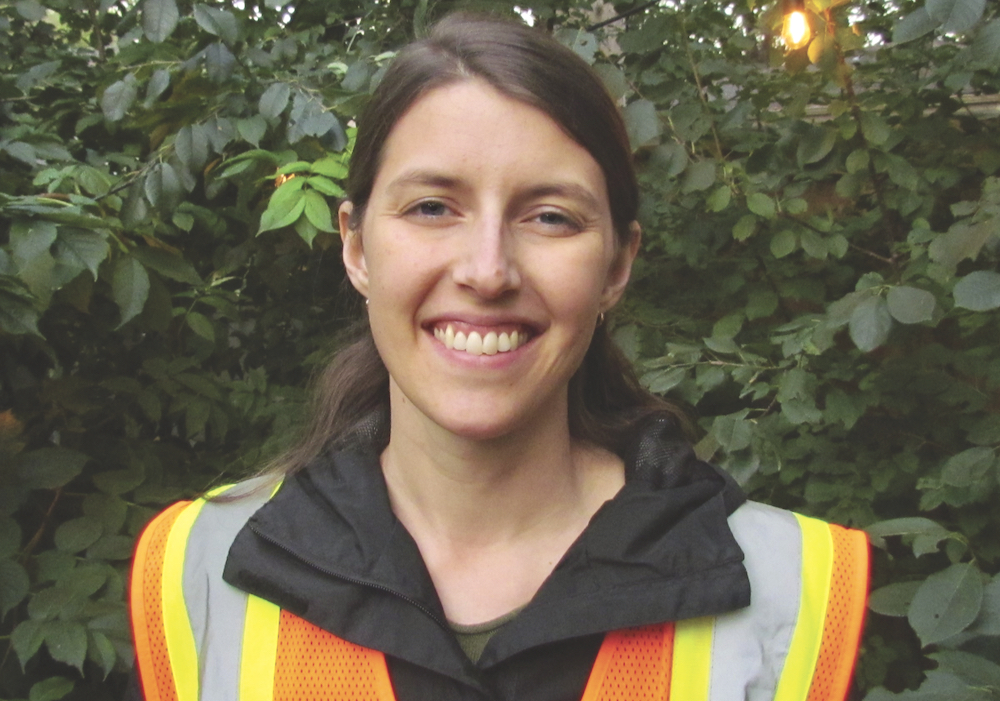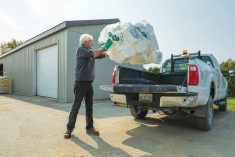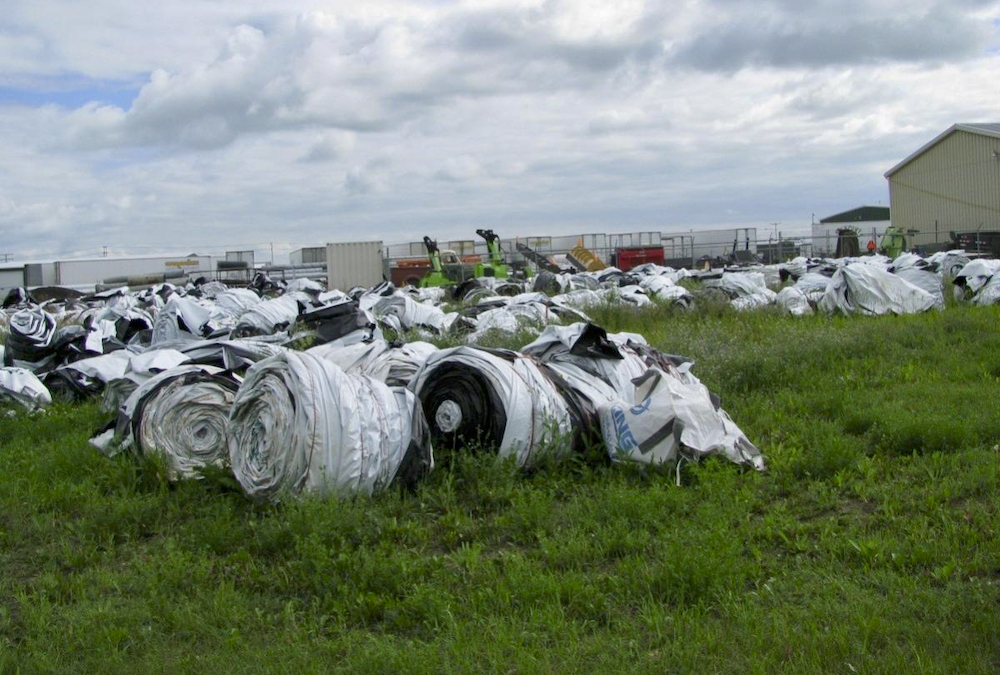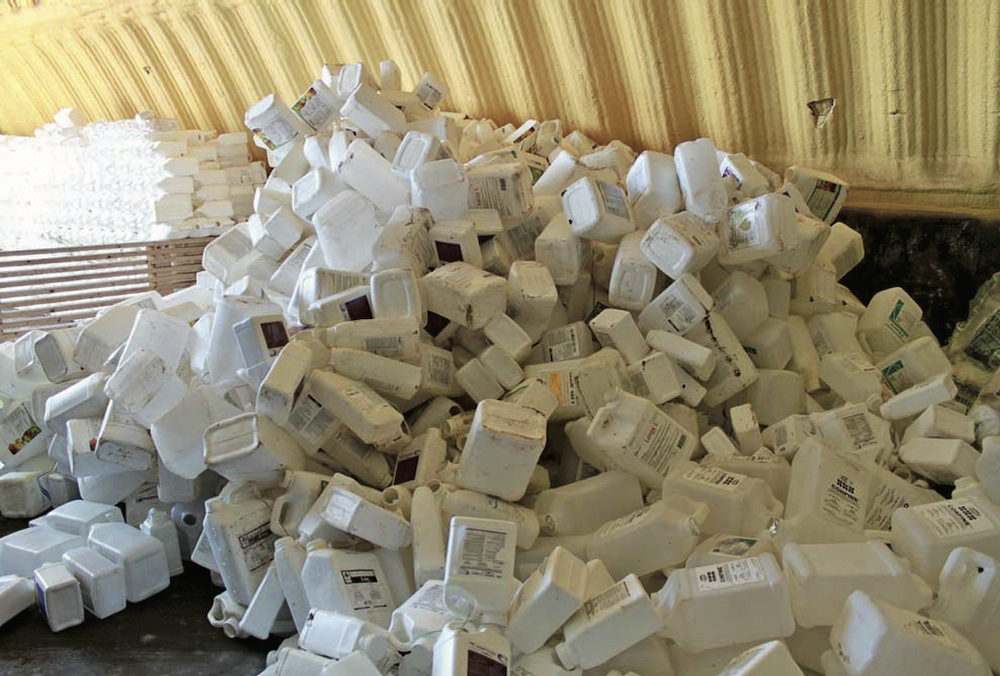Cleanfarms is stepping up efforts to transition recycling depots to retail outlets instead of municipalities.
The stewardship organization is responsible for collecting used agricultural plastics for recycling. In June it announced a plan to gradually transition its Manitoba sites at municipal transfer stations and landfill facilities to agricultural retail operations.
[READ MORE] Manitoba nearly doubles recycled ag plastics
Read Also

Tie vote derails canola tariff compensation resolution at MCGA
Manitoba Canola Growers Association members were split on whether to push Ottawa for compensation for losses due to Chinese tariffs.
In late August, the organization hired a new program coordinator, Serena Klippenstein, who will oversee that transition.
Klippenstein is a Manitoban with roots in the farming community. She holds an agriculture degree from the University of Manitoba, with a major in agronomy and a minor in soil science, and a Master’s degree in soil science from the University of Saskatchewan. She has managed corporate programs for the Canola Council of Canada and worked as a seed quality assurance lead with a seed firm.
“Helping to transition collection sites for empty pesticide jugs from municipalities to ag retailers in Manitoba over the next three years is a critical part of continuing to offer a convenient and efficient system for producers to recycle these materials. I’m keen to help make that happen,” she said.
Klippenstein’s boss, Cleanfarms’ executive director Barry Friesen, said he’s pleased with his new hire.
“We are proud to have Serena on our Cleanfarms team to help expand relationships in Manitoba that will benefit producers and industry stewards.”
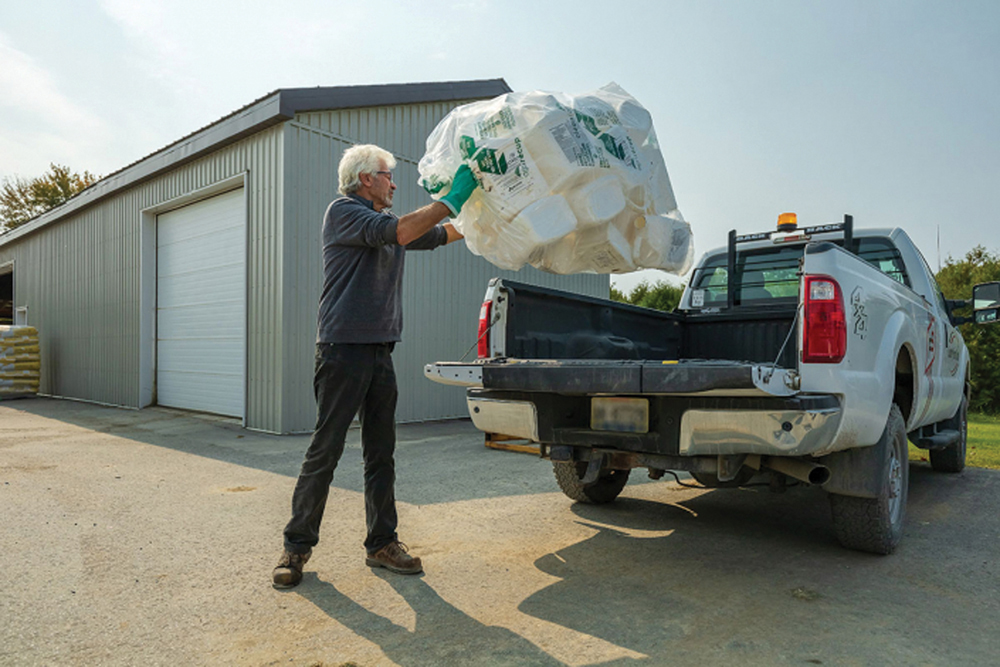
Friesen said the transition will benefit farmers, retailers, municipalities and the environment. For farmers, recycling will be more convenient.
“There are simply more agricultural retail locations than there are municipal sites, so it gives farmers more options to manage their containers,” Friesen said.
It also means farmers won’t have to stop at municipal transfer stations and can instead drop their recycled containers when they visit their retailer for more supplies. Retailers may benefit from increased contact with their customers, said Friesen.
As for municipalities, container collection is something many prefer not to do.
“Some municipalities are not interested in doing this anymore because they have to operate these collection sites on their municipal tax base,” Friesen said. “Some have threatened to, and in some cases, actually moved forward with closing their sites. So, it’s a natural progression.”
The transition works better from Cleanfarms’ perspective as well.
“We tend to get more containers at retail locations, and they tend to be cleaner,” Friesen said. “It’s mandatory that the containers be triple-rinsed or pressure-rinsed before they are returned. But inevitably, particularly at municipal sites where they’re often not checked, some farmers will bring them back unrinsed.”
At retail locations, there’s more accountability and therefore better compliance.
The transition to retail recycling sites will bring Manitoba in line with other provinces. Alberta is now going through the same transition, but other provinces have already made the shift, following Saskatchewan’s lead taken more than 20 years ago.
While it’s a little extra work for agricultural retailers, Friesen says there’s been little resistance to the program. That’s partly because of the extra customer contact, but they’ve also seen it coming for many years.
“This is all part of product stewardship and overall sustainability,” Friesen said.
The biggest challenge is changing old habits.
“We’ve been collecting in Manitoba at municipal sites for over 30 years. That’s 30 years of habit,” he said. “But that is why we’re doing it over a three-year period.”
[READ MORE] Shoal Lake cattle producer big on wrapped silage bales, but frowns on disposal requirements
The first phase begins with municipal collection sites that have had little or no containers dropped off in the past few years. Ten of these municipal sites have already closed to container collection, and another 64 are expected to be closed by the end of the year. The full transition to agricultural retailers will continue through 2023 and 2024.
Friesen says the recovery rate for containers is good, but he is hopeful this transition will move the needle even further.
“Most farmers are doing the right thing. We have an almost 80 per cent recovery rate on the small and bulk containers, and that’s great.”
Of course, he would like to get that last 20 per cent, but acknowledges it will be difficult. Friesen said there’s a rule of thumb in the recycling industry: the first third of the product is relatively easy to get because of early adopters; the next third is tougher, so it takes time to reach those recovery rates; and the last third is the hardest.
“So, our last 20 per cent is sort of like losing the last five pounds. It’s really tough to do.”
Nevertheless, he remains optimistic.
“It can be done. We’ve got some really high recovery rates in Ontario and Quebec, for instance. They’re creeping into the 90 per cent range.”
In addition to overseeing the transition of recycling to retail agricultural outlets, Klippenstein will help implement programs that recycle silage bags and bale wrap. Those are made possible in Manitoba with funding from the Dairy Farmers of Canada “Here for Tomorrow” project, as well as Cleanfarms’ “Unwanted Pesticides and Livestock/Equine Medications Collection” program that collects old, obsolete and unwanted pesticides and farm animal medications for safe disposal.
Klippenstein said her position will allow her to work closely with producers.
“Farmers who use agricultural plastic products like grain bags want access to programs that help them manage those materials when they are no longer useful,” she said. “That’s what I am here to do — to help find solutions that make sense in Manitoba.”


